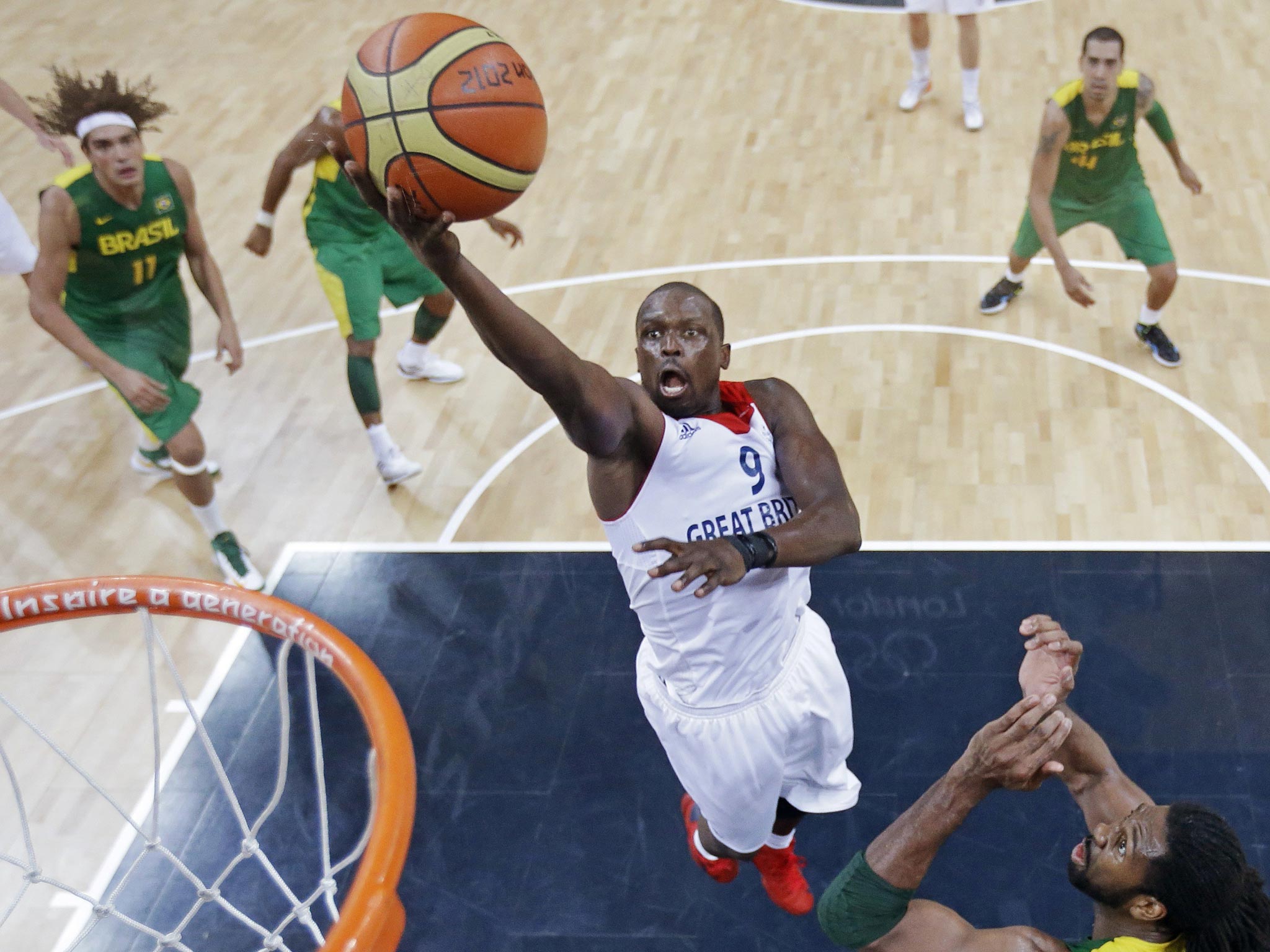Alan Hubbard: Sochi successes hide the fact that UK Sport’s ‘no compromise’ funding model leaves sports like basketball shivering in the cold
Basketball, whose funding has been cut to zilch, has been treated shamefully

Your support helps us to tell the story
From reproductive rights to climate change to Big Tech, The Independent is on the ground when the story is developing. Whether it's investigating the financials of Elon Musk's pro-Trump PAC or producing our latest documentary, 'The A Word', which shines a light on the American women fighting for reproductive rights, we know how important it is to parse out the facts from the messaging.
At such a critical moment in US history, we need reporters on the ground. Your donation allows us to keep sending journalists to speak to both sides of the story.
The Independent is trusted by Americans across the entire political spectrum. And unlike many other quality news outlets, we choose not to lock Americans out of our reporting and analysis with paywalls. We believe quality journalism should be available to everyone, paid for by those who can afford it.
Your support makes all the difference.No one died, no bombs went off, no gays were publicly pilloried and Sochi’s spectacular Winter Olympics were the epitome of all that is good in sport. Huge sighs of relief all round.
Despite all the forebodings Russia pulled it off in style. The new smiley face of Russia was a welcome sight on our TV screens. However, only time, and possibly the unfolding political drama in Ukraine, will tell if it was all just for show – their Winter Games show.
Unquestionably, though, the costliest and “coolest” Winter Olympics in history went off without a visible hitch. And, joyously, for Britain the expedition proved to be the most rewarding in 90 years.
UK Sport was first to trumpet all the British successes, ahead even of the British Olympic Association, proclaiming after every medal – gold, silver and two bronze – how the Lottery funding and their self-admitted “no compromise” policy had laid the foundations for GB’s triumphs. No argument with that. The target of at least three medals had been achieved, plus one for luck. High fives and trebles all round.
Chief executive Liz Nichol declared: “Our decision to invest on a ‘no compromise’ basis for winter sports, in the same way as we do for summer sports this past four years has really paid dividends.
“What this shows is getting the right investment to the right athletes for the right reasons is key to delivering medal-winning success. UK Sport is committed to supporting every athlete who can demonstrate the realistic potential to win a medal.”
No argument with that either. But what one might argue with this is whether those disciplines in which GB ended up among the also-skieds, those well down the thirties, forties and in one case sixties in disciplines, including the cross-country and the biathlon, should continue to benefit from this largesse while a more popular summer Games sport like basketball has been given the financial heave-ho under the draconian winning-is-everything policy at UK Sport.
British Basketball, whose funding has been cut to zilch because of this medal fixation, has been treated at best regrettably and at worst shamefully. With 70 per cent of participants under 25 and half from black and minority communities, basketball is hardly an elitist sport. Unlike fencing, which astonishingly has had its funding increased by almost 30 per cent to just short of £4m despite never having got a sniff of an Olympic medal since 1964.
And sailing, the biggest recipients of all. Does it really need an extra bung of £25.5m? Isn’t the Royal Yachting Association wealthy enough to ensure the sailors a few extra home comforts? By coincidence the new chairman of UK Sport is Rod Carr, a former chief executive of the RYA. Of course, we totally accept assurances that he played no part in the funding process.
UK Sport says it is all about winning medals. So whatever happened to “Sport for All”? Such rigidity is sacrificing long-term legacy for a short-term feel-good factor. I cannot see why even half the extra £25m to sailing, the £7m to modern pentathlon and £4m to fencing, could not be shared among those sports (basketball, water polo, weightlifting, wrestling and synchronised swimming) that have been deprived of any. It could be used to help them aspire towards success craved by UK Sport.
Sailing, fencing, equestrianism, the modern pentathlon. Largely pursuits you won’t find being avidly practised in inner-city compounds like Hackney and Brixton where basketball proliferates.
UK sport has done admirable work in boosting British sport in terms of technology, talent identification, sports science and coaching support. But this hard-line policy over cash is quite unfair. Even unsporting, you might say.
Could this lust for gold now be damaging rather than enhancing sport in Britain?
I am not alone in failing to see why basketball should have to forgo the £8.5m it received after 2012. Since 2009, when basketball was first properly funded, its male and female teams have reached five European Championship finals after only two appearances in the previous 50 years.
Both teams are now in the world’s top 25. Can this be said of some other funded sports, winter and summer?
But good luck to them. As UK Sport apparently can’t spare any cash, we just hope those they are enriching can spare at least a thought for basketball, and those other sports left shivering in the cold.
Join our commenting forum
Join thought-provoking conversations, follow other Independent readers and see their replies
Comments